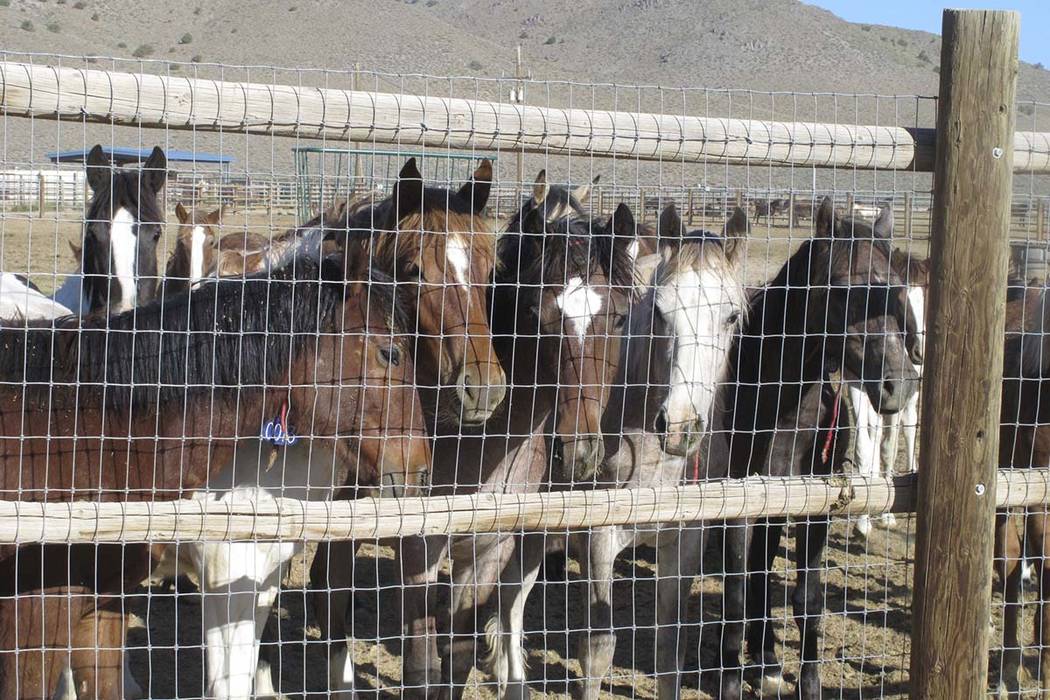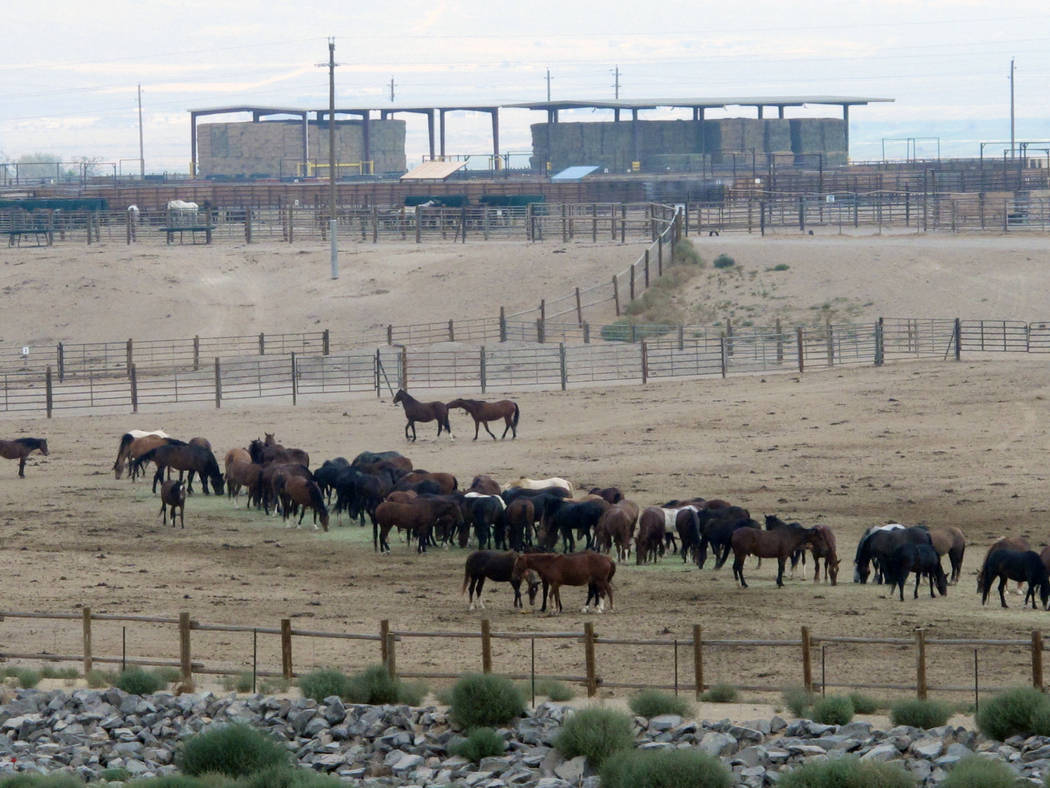Forest Service’s corral for wild horses seen as step to slaughter
RENO — The U.S. Forest Service has built its first corral for wild horses, which could allow it to bypass federal restrictions and sell the animals for slaughter.
The agency acknowledged in court filings in a potentially precedent-setting legal battle that it built the new pen in Northern California for mustangs gathered in the fall on national forest land along the Nevada border because of restrictions on such sales at other federal holding facilities.
The agency denies claims by horse advocates that it has made up its mind to sell the more than 250 horses for slaughter. But it also says it may have no choice because of the high cost of housing the animals and continued ecological impacts it claims overpopulated herds are having on federal rangeland.
“While slaughtering wild horses does not present a pleasant picture, the reality of this dire situation is not pleasant,” Justice Department lawyers representing the agency wrote in their most recent filing last month. “The Forest Service is taking a step to reduce what is universally recognized as a natural catastrophe.”
Horse advocates have been suing the government for two decades over mustang roundups that private ranchers say are necessary to curb growing herds that reduce the forage on federal lands they lease for cattle and sheep grazing across the West. The region holds roughly 90,000 wild horses.
A sharp reduction in demand in recent years for a federal program that offers the horses for adoption to the public has left little room in existing corrals. Horse advocates argue the mustangs are federally protected and that taxpayers subsidize the livestock grazing on U.S. land.
Hearing set for end of month
A hearing is scheduled Jan. 31 in federal court in San Francisco on a motion filed by the Animal Legal Defense Fund and American Wild Horse Campaign seeking an injunction to block the sale of the horses captured in the Modoc National Forest in October and November for possible slaughter. The new pen is in the forest, about 170 miles northwest of Reno.
Forest Service Chief Vicki Christiansen announced late last year she would postpone any sales for slaughter until at least Feb. 18.
The protection groups say it would be the first time in nearly a half-century the government has sold mustangs “without limitation,” or for any purpose, including slaughter.
Horse slaughterhouses are prohibited in the U.S. but legal in many other countries, including Canada, Mexico and parts of Europe where horse meat is considered a delicacy.
The Wild Free-Roaming Horse and Burros Act that President Nixon signed into law in 1971 prohibits the inhumane destruction of wild horses. Congress approved an appropriations amendment in 2004 that allows the Forest Service, under its parent Agriculture Department, to sell horses without limitations if they’re over age 10 and have been offered for adoption three times unsuccessfully.
But in most years since then, Congress has specifically prohibited the Bureau of Land Management, under the Interior Department, from using any appropriations for such purposes. President Donald Trump proposed allowing such sales in his 2017 budget, but Congress refused to go along.
The Forest Service has previously held any horses it gathered at pens belonging to the BLM, which manages 385,000 square miles of public lands in the West.
With few exceptions, lawsuits have targeted the bureau because it captures the vast majority of the horses. BLM lands hold an estimated 83,000 wild horses, while national forests managed by the Forest Service hold about 8,000.
Gathered from Modoc National Forest
The Forest Service gathered 932 horses in the Modoc National Forest late last year and shipped about 260 to the new corral, while placing about 650 at a BLM facility in nearby Susanville, California.
Justice Department lawyers acknowledged in the December filings “BLM is not permitted to humanely destroy healthy, unadopted horses or conduct any sale that could ultimately result in their destruction, which includes any Forest Service horse in BLM custody.”
“What has changed is that the Modoc now has its own short-term holding facility … which is not subject to congressional restrictions,” they wrote about the corral, which currently can hold up to 300 horses but has room for expansion to accommodate as many as 1,500. They said local ranchers “generally support these sales” because of the horses’ economic impact on leased grazing land.
The attorneys also said the opponents’ assertion the horses will be slaughtered “is only speculative, not concrete and imminent.”
Horse advocates say the government can’t have it both ways.
“It cannot both argue it is harmed by plaintiffs’ delay in bringing this action because of all the time and resources it has expended to allow the sale of horses without limitation, yet also insist to the court that it has not yet made any such decision,” their lawyers wrote Jan. 8. “In short, the record and defendants’ own statements make clear that the decision to sell horses without limitation is final and judicially reviewable.”





























